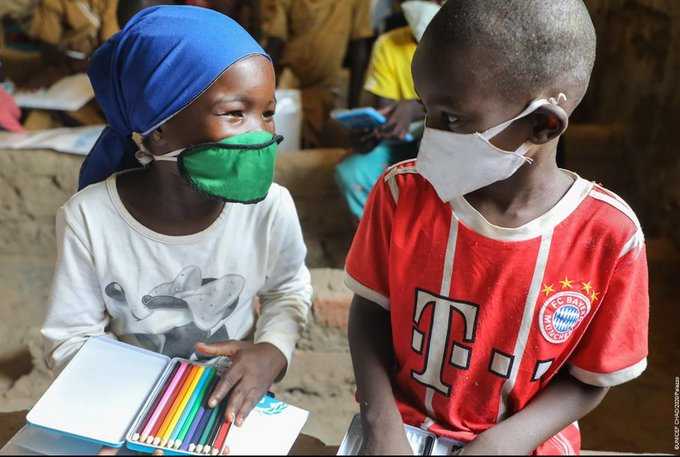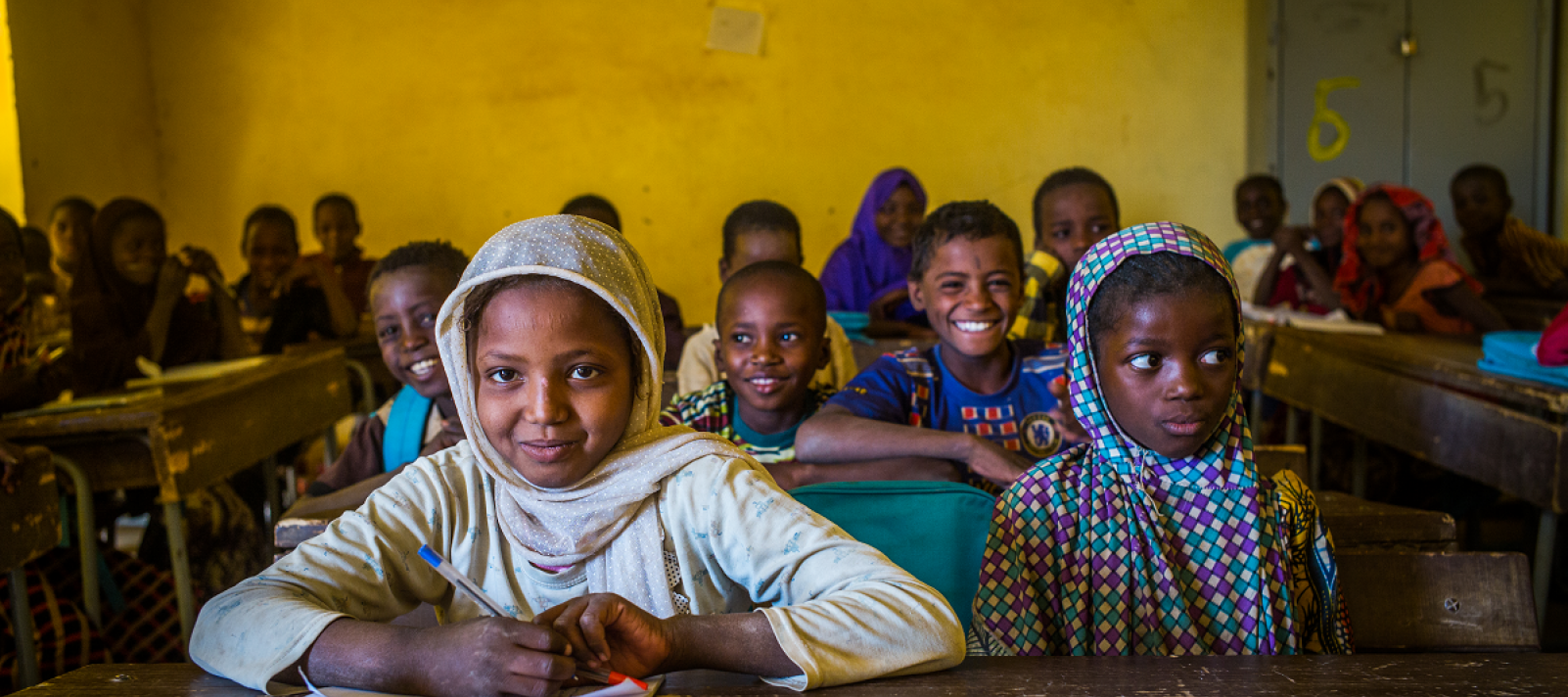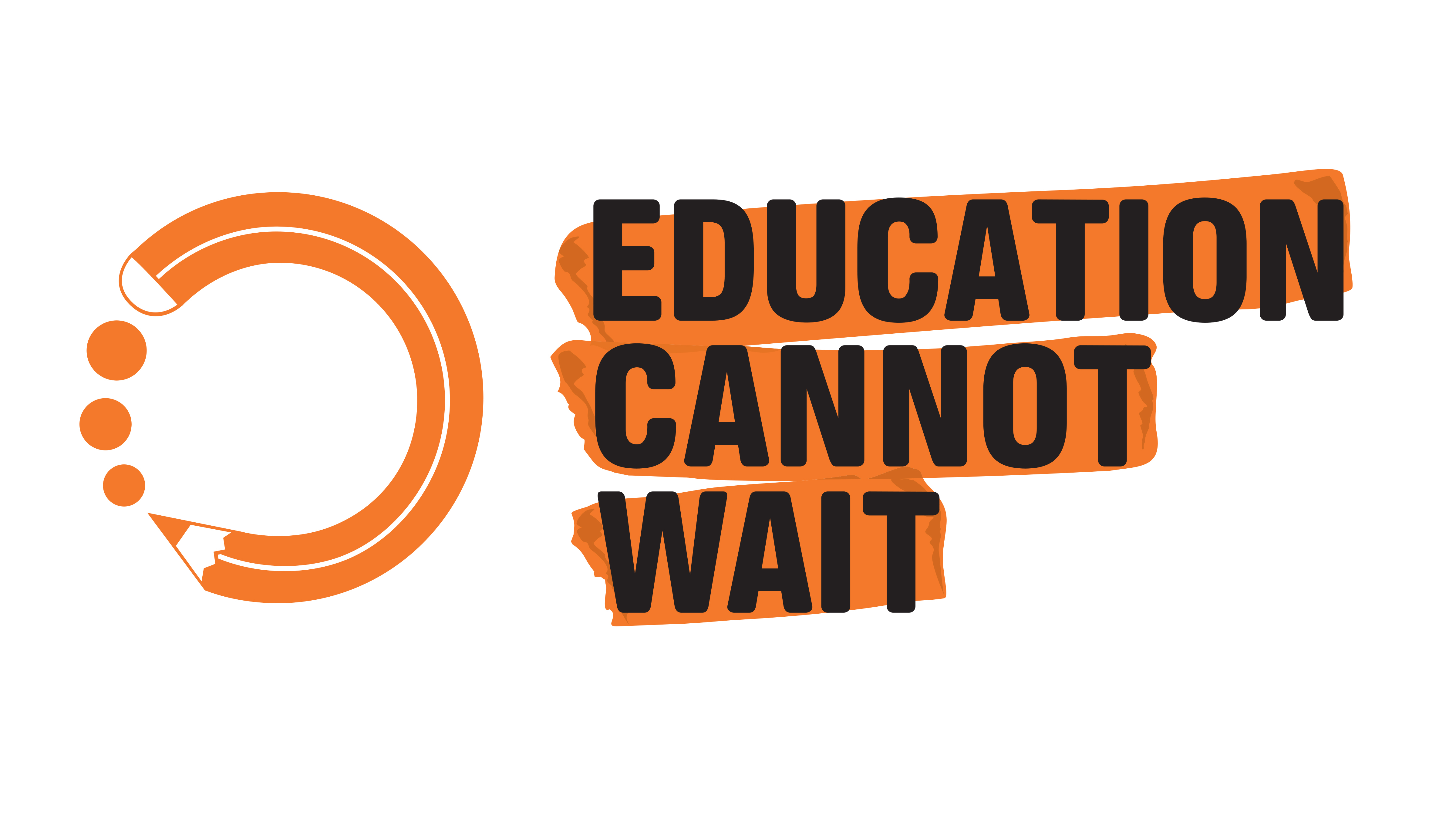Education Cannot Wait Announces US$1 Million Grant to UNHCR in Support of Forcibly Displaced and Host-community Children in Niger

ECW’s First Emergency Response grant will reach over 6,000 girls and boys in the Tillabéri and Tahoua regions of Niger with expanded COVID-19 prevention measures, new classrooms and integrated educational support
The education system in Niger faces major challenges: COVID-19, climate change, insecurity, armed attacks on schools and other factors are pushing refugees and internally displaced girls and boys out of school and into the shadows and margins of society.
To address these immediate, critical challenges – and to support Niger in achieving its goals for equitable and inclusive quality education as outlined in the United Nations’ Sustainable Development Goals – Education Cannot Wait (ECW) announced today an additional US$1 million grant to the UN Refugee Agency in Niger.
“The uprooted children and adolescents and their host-communities in Tillabéri and Tahoua endure unspeakable suffering. Reports allege terror, kidnapped teachers and burnt down schools. We must not only condemn such attacks, we need to take action” said Yasmine Sherif, Director of Education Cannot Wait, the global fund for education in emergencies and protracted crises. “We can all take action and Education Cannot Wait is therefore partnering with UNHCR in Niger to support their admirable efforts on the ground to deliver education combined with protection now.
“The beginning of 2021 has been particularly dramatic, with several attacks having forced tens of thousands of people to flee, and depriving children of school,” says Alessandra Morelli, UNHCR Representative to Niger. “Education is without a doubt the strongest tool to protect children and youth affected by armed conflict from death, injury and exploitation. Education alleviates the psychological impact of armed conflict by offering routine, stability and psychosocial support.”
“We are grateful for this strategic partnership with ECW, which will contribute to the objectives of UNHCR’s refugee education strategy that aims to support access to inclusive, equitable and quality education in national systems, create conditions in which children and young people can learn, thrive, be more resilient, and become agents of peaceful coexistence who contribute to their society,” Morelli added.
The 12-month grant will be implemented by UNHCR in partnership with the Government of Niger and other key stakeholders. Building on ECW’s recently announced US$11.1 million in catalytic grant funding for Niger’s multi-year resilience programme, the fast-acting investment will reach over 6,000 crisis-affected girls and boys in the Tillabéri and Tahoua regions of Niger.
The new programme will: expand COVID-19 prevention measures with the rehabilitation of water and sanitation facilities; help build and rehabilitate classrooms and learning centres; and provide teachers and students with the training, tools and resources they need to respond to the unique needs of children and youth who have been displaced by ongoing violence in the region. The progamme has a specific focus on ensuring access to learning opportunities for girls and children with disabilities.
Niger hosts the largest number of refugees and internally displaced people (IDPs) in the Central Sahel. At the end of 2020, UNHCR Niger registered 573,059 refugees, IDPs and asylum seekers in Niger, resulting from years of widespread insecurity and armed attacks. The Tillabéri and Tahoua regions in particular continue to face an unpredictable and volatile security environment, which has led to the displacement of 138,229 Niger citizens, adding to the already existing caseload of 60,244 Malian refugees in both regions as well as an estimated 7,000 Burkinabe refugees in the Niger-Burkina border area. The start of 2021 saw renewed attacks and secondary forced displacement.
Notes to Editors
Learn More
Programme Outcomes
Outcome 1 – Crisis-affected girls and boys access education services
UNHCR will construct or improve, as well as equip 15 classrooms with a capacity of 50 students (creating an additional capacity for 750 students) in durable material. Next to the construction of the classrooms, annexes will be built according to the needs identified through different multisectoral evaluations carried out in the intervention areas. Special attention will be given to physical security of girls and boys in the classrooms by constructing fences around the schools. Children with disabilities will benefit from improved accessibility.
To continue to combat the COVID-19 pandemic, UNHCR will equip the new classrooms and classrooms in need of rehabilitation with appropriate WASH facilities. A total number of 1,200 persons, including teachers, will be trained on WASH and COVID prevention.
In addition, UNHCR will offer material support to improve the learning environment. Over 6,000 girls and boys, including adolescents and children with special needs, will receive a schooling kit with notebooks, pens and books. 88 teachers will be equipped with a didactic kit, which includes books and material in function of the discipline taught.
Furthermore, awareness raising campaigns on back to school and school retention will be organized. UNHCR will organize 12 mass sensitization campaigns and 2 regional workshops, diffuse messages through media, set up commemorative events linked to education and distribute visibility material.
Outcome 2 – Formerly out-of-school boys and girls completed an accelerated education program (AEP)
Coordinated with the educational authorities, UNHCR will support the establishment of remedial classes for some 1,000 students, mostly Burkinabe refugees and IDPs out-of-school. The authorities will train 100 teachers (50% female teachers) for 5 days and offer them fixed-term contracts of three months to deliver remedial classes, which will be supervised by the Government. The content of these classes will be developed by educational authorities such as inspectors, pedagogic counselors of primary education and the regional directorates of primary and secondary education.
Outcome 3 – Crisis-affected girls and boys in ECW-supported schools feel safe in their classrooms
To improve the quality of education, UNHCR will organize teacher trainings on a various set of subjects. Next to WASH, teachers will receive training on COVID-19 preventive measures, SGBV, child protection issues, mental health and psychosocial support, code of conduct, positive disciplining, conflict management, social cohesion, disaster prevention and risk management.
Finally, UNHCR will ensure that ECW-supported learning spaces have a functioning school-management committee and/or parent-teacher association. UNHCR will map, set up and train committees. The members of 30 community educational structures will receive training on their roles and responsibilities, the management of these structures and community mobilization.
About Education Cannot Wait (ECW):
ECW is the first global fund dedicated to education in emergencies and protracted crises. It was launched by international humanitarian and development aid actors, along with public and private donors, to address the urgent education needs of 75 million children and youth in conflict and crisis settings around the world. ECW’s investment modalities are designed to usher in a more collaborative approach among actors on the ground, ensuring relief and development organizations join forces to achieve education outcomes. Education Cannot Wait is hosted by UNICEF. The Fund is administered under UNICEF’s financial, human resources and administrative rules and regulations, while operations are run by the Fund’s own independent governance structure.
On Twitter, please follow: @EduCannotWait @YasmineSherif1 @KentPage
Additional information available at: www.educationcannotwait.org
To support our efforts and donate to Education Cannot Wait, text ‘ECW’ to 707070 (*from the US and Canada only) or visit www.pledgeling.com/ECW.
For press inquiries:
Anouk Desgroseilliers, adesgroseilliers@un-ecw.org, +1-917-640-6820
Kent Page, kpage@unicef.org, +1-917-302-1735
For other inquiries: info@un-ecw.org
For Press Inquiries:
Anouk Desgroseilliers:
adesgroseilliers@un-ecw.org
+1-917-640-6820
Kent Page:
kpage@unicef.org
+1-917-302-1735



